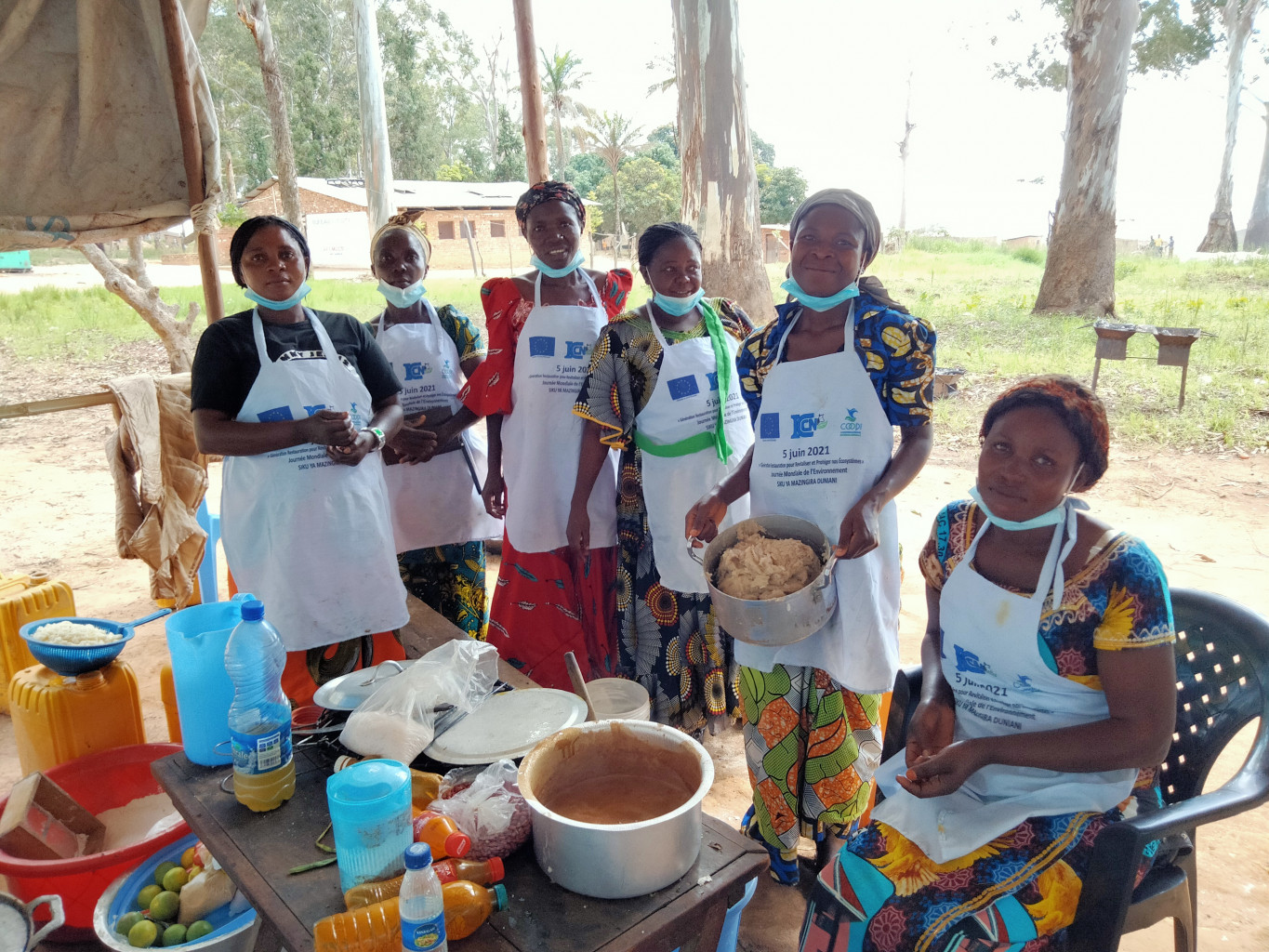29-08-2022 | di COOPI
DRC. Nutrition, hygiene and environmental protection
As of July 2020, COOPI - Cooperazione Internazionale is active in the Democratic Republic of Congo with the "Project to combat food and nutritional insecurity among the populations living in the Upemba National Park (PNU) in Mitwaba territory and the Bili-Mbomu Conservation Area (BMCA)", funded by the European Union. The project addresses the structural causes of food and nutrition insecurity in DRC, where malnutrition rates among children and pregnant women remain very high. This phenomenon is due to a lack of nutritiousand quality food, but also to illnesses related to poor household hygiene, body hygiene and meal preparation practices. The project therefore aims to increase the availability of quality agricultural products, helping beneficiary communities learn good nutrition and hygiene practices to cope with malnutrition.
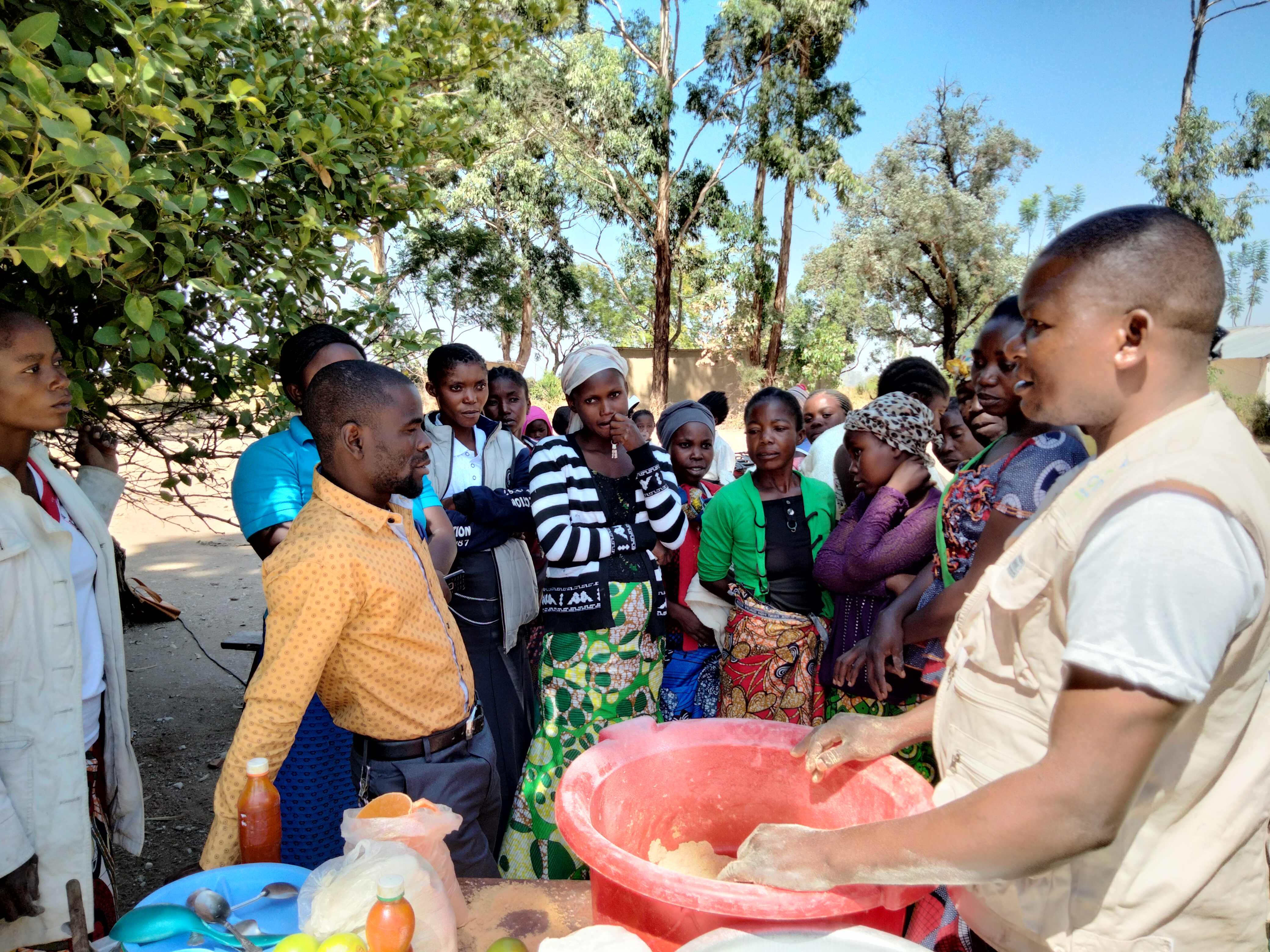
The achievement of the project's objectives is made possible through community awareness programmes and the involvement of numerous local actors, including the health districts of the intervention areas and ANJE (Alimentation des Nourissons et Jeunes Enfants: feeding infants and children) support groups. Through cooking demonstrations and awareness-raising sessions, COOPI is successfully disseminating nutrition and hygiene basics. In particular, awareness-raising activities also extend to the 34 primary schools in the beneficiary villages, in order to teach future generations good hygiene and sanitation practices.
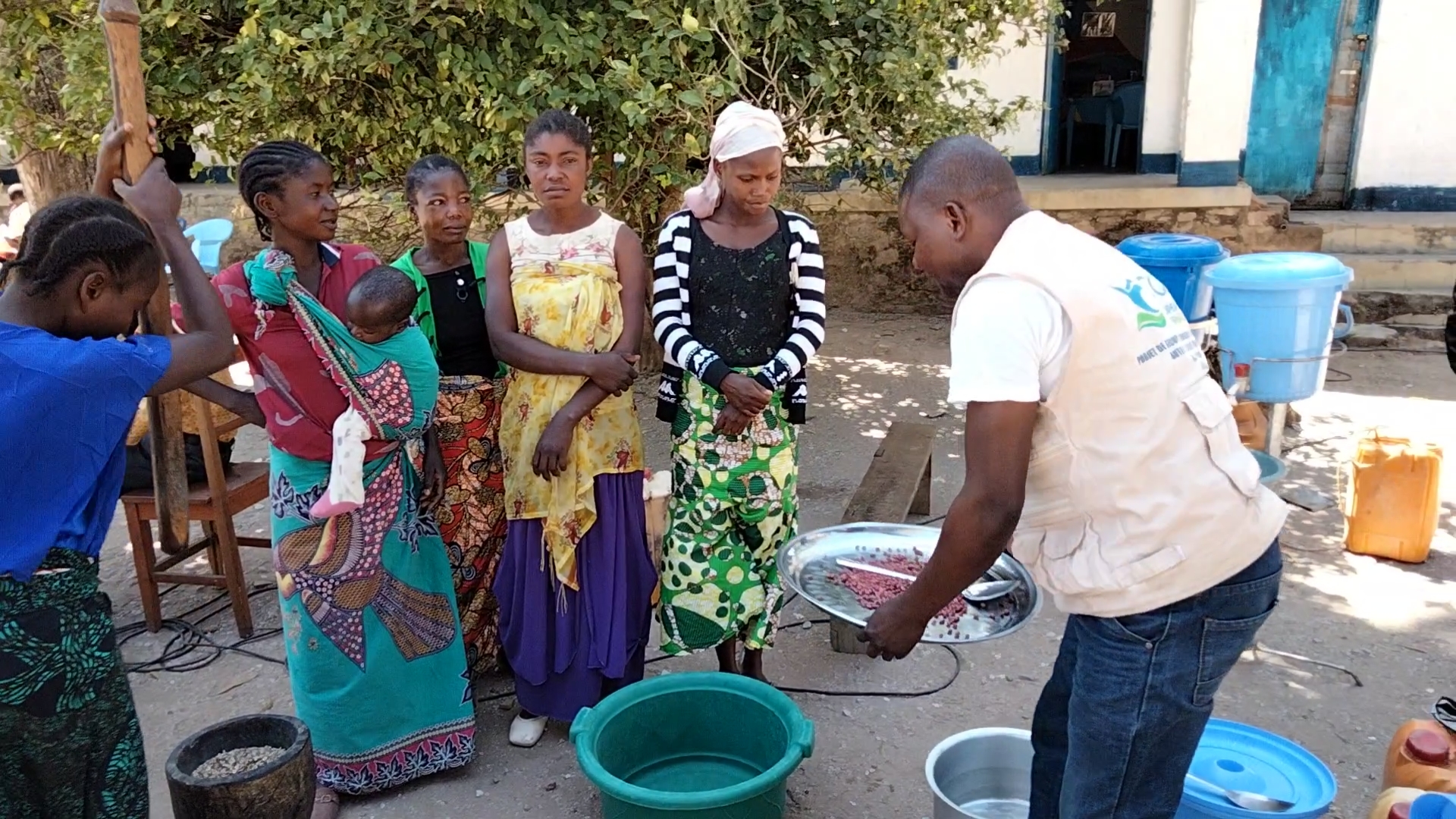
It is crucial to emphasise how malnutrition and hygiene are linked to environmental protection. In fact, the beneficiary populations of the project, due to food shortages, are forced to resort to the resources of the natural parks around which they live in order to feed themselves, practising illicit activities such as poaching and poaching and thus increasing the pressure on the surrounding ecosystem.
For this reason, with the support of the Congolese Institute for Nature Conservation (ICCN), several cultural days were organised in schools through which children, parents and community members benefited from the expertise of COOPI and ICCN technicians in nutrition education, hygiene education and environmental education. In addition, 4 local health districts benefited from capacity-building trainings in combating malnutrition, with the support of PRONANUT (Programme National de Nutrition, Programme of the Ministry of Public Health). Finally, 116 members of the ANJE support groups were trained in good nutrition practices and received bureaucratic materials for meetings and community outreach.
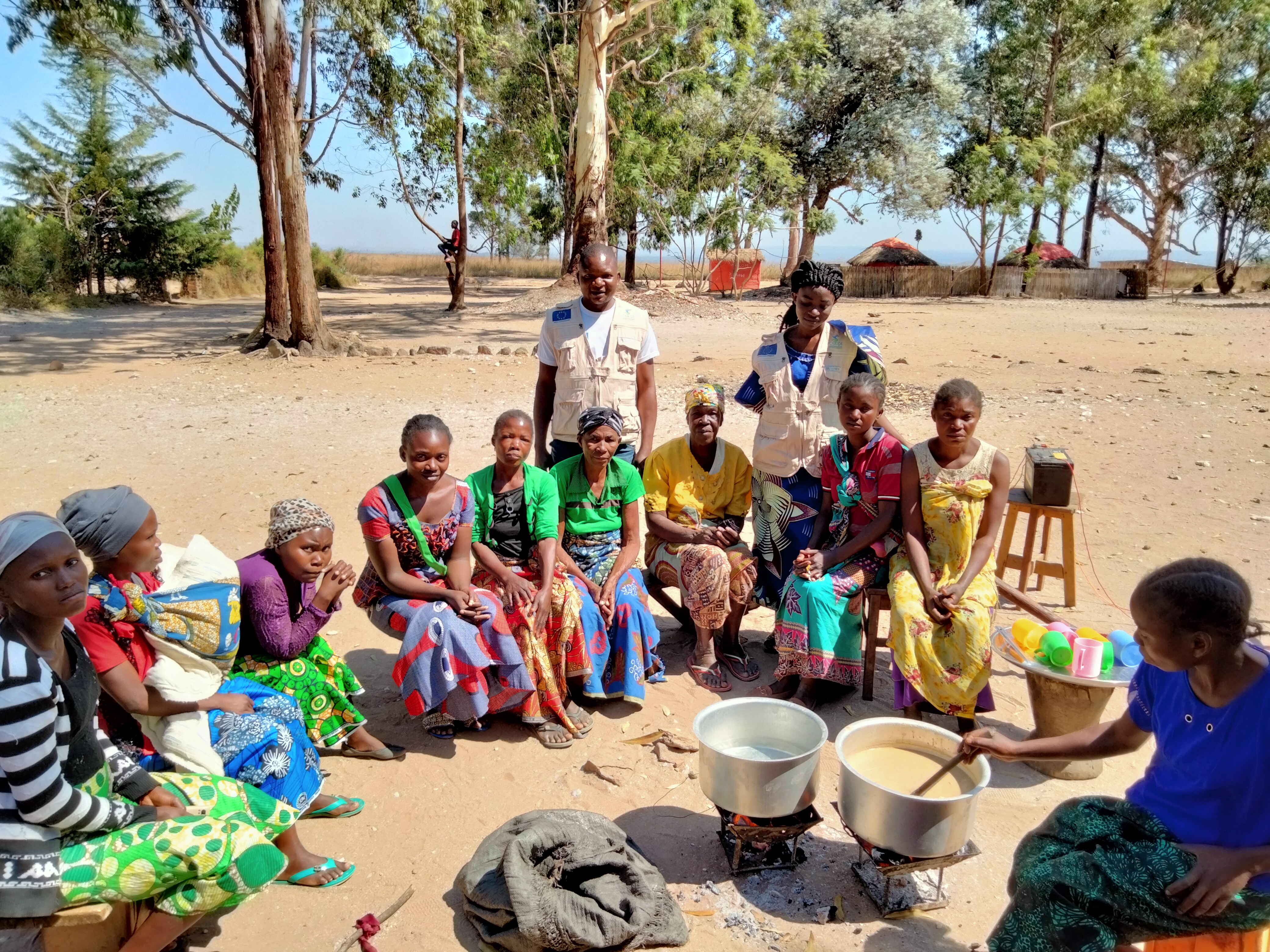
In the Democratic Republic of Congo, child malnutrition and malnutrition of lactating or pregnant women is a major challenge to be faced. An estimated 3.4 million children are severely malnourished, according to WFP/UNICEF data. COOPI fights every day alongside the population to guarantee them food and better hygiene conditions.
Photographs by: Jibril Jarrar
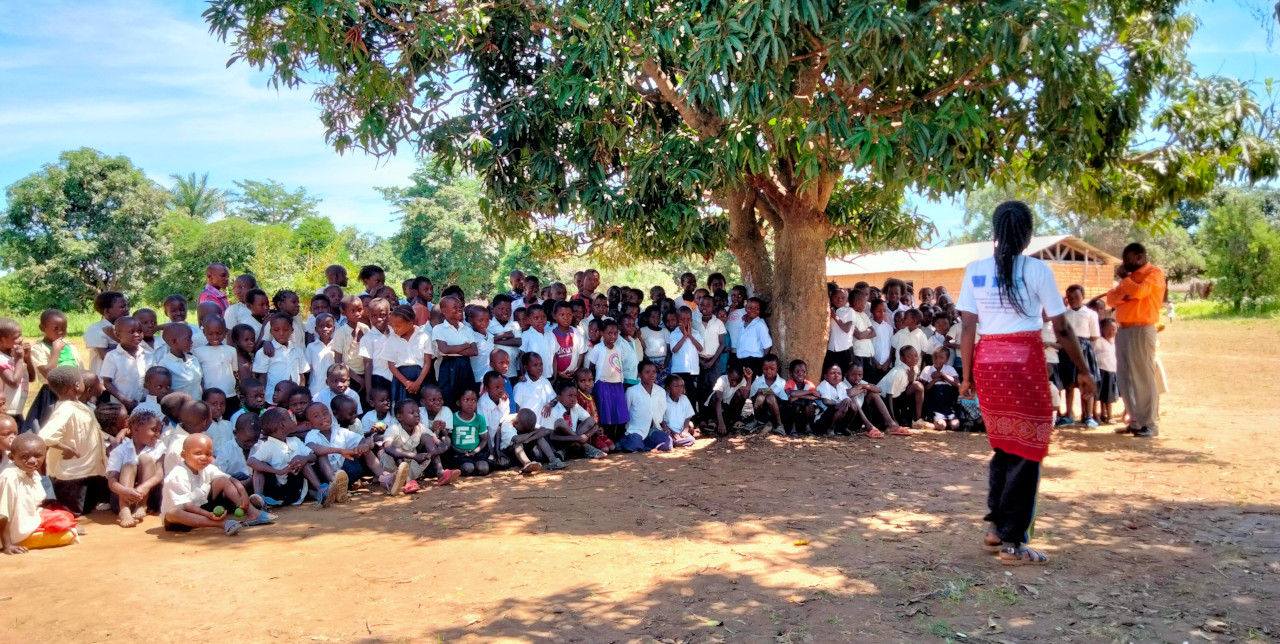



 Dem. Rep. of Congo
Dem. Rep. of Congo
